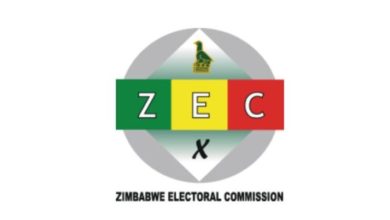Media activists push for openness, decry secrecy by public entities

Media activists in Zimbabwe are concerned that the lack of information disclosure policies by public entities, coupled with their unwillingness to release information, undermines accountability and transparency.
These concerns are taking place in light of the Freedom of Information Act (FIA), in effect since July 1, 2022, and derived from Section 62 of Zimbabwe’s Constitution requires governmental bodies, including commercial companies, to make information available to the public to enhance public accountability and rights.
FIA therefore becomes the enabling statute drawn from Zimbabwe’s Constitution, with several defining pillars, including fostering public accountability and promoting rights.
According to media activists, the FIA obligates public entities to take necessary steps to educate and inform the public regarding information they may be interested in, as long as that information is for public accountability.
“When you look closely at the FIA, it obligates government entities to keep information, organise and maintain it. This is meant to make sure the public can readily access information, and this is very important,” said Tawanda Majoni, a veteran journalist and director of Information for Development Trust (IDT).
Majoni said this meant public entities must have established information disclosure policies in place to share public-interest information.
“There are two types of disclosures that public entities are supposed to concern themselves with. The first is voluntary disclosure where the public entity would go out to educate and inform the public about their rights or give them information they feel might be relevant in the sense of public accountability and the promotion of rights,” he said.
Secondly, Majoni said there is ‘solicited disclosure’ whereby members of the public and other interested stakeholders go and request information.
“However, the problem is from preliminary assessments or evaluations, it seems like most public entities do not have these policies,” lamented the media activist.
“Now, if a public entity doesn’t have the policies, it implies that it would still be very difficult for members of the public to access the information from the respective public entities.”
Majoni said this lack of public disclosure implies that at the end of the day, public accountability and transparency are not promoted adequately.
“If you look around or visit websites of most of the public entities, you don’t see anything that relates to those information disclosure policies yet one would expect the public entities to include that on their websites,” he said.
“But that’s not the case and in itself, it becomes a red flag to say there’s a high possibility that these entities may not be having the information disclosure policies.”
Majoni lamented that this culture of hiding public information has been emboldened by un-proactive citizens who have not fully demanded the information.
“I know there are efforts by several non-profit organisations and civic society organisations to receive information in accordance as prescribed by the FIA. I also know for a fact that most of those requests have fallen on deaf ears,” Majoni said.
“In other words those who have proactively demanded the information have not been able to get the information. That’s again an indicator that public entities are not conforming with the provisions of the Freedom of Information Act.”
Such information denial demands undermine public transparency and accountability, as the private sector can also refuse to provide information, Majoni explained.
“The law gives the right of access to information around private private sector operations, systems, commissions and so forth and so on as well. So at the end of the day, because we do not have adequate transparency and accountability following the absence of information disclosure policies in those respective public entities our governance tends to suffer,” he explained.
“When governance suffers there are ripple effects in terms of the performance of democratic institutions, commercial institutions and so on. Where there’s lack of transparency and accountability, there’s corruption, bad governance, abuse of systems, abuse of office and so on.”
Chairperson of the Bulawayo Media Centre, Pamenus Tuso concurred with Majoni saying failure to be transparent about public information contributes to misgovernance and corruption.
“By concealing information about issues that are of public interest many public entities and government departments want to avoid consequences and they want to portray themselves more favourably to the general public,” said the journalist.
Tuso added that public officials needed to be reoriented with the law so they could adequately serve people.
“The crucial starting point of an information disclosure system is the public officials who manage the information and determine whether it should be disclosed. That’s why they should be educated about what FIA is and what it stands for,” said the journalist.
“It’s frustrating for the media that e information in the public interest is exclusively retained by government officials, departments, institutions, even information officers, yet citizens need that information as means of checking on government activities.”






